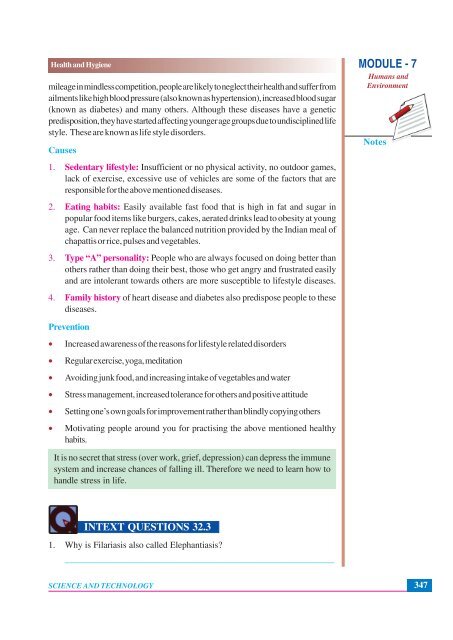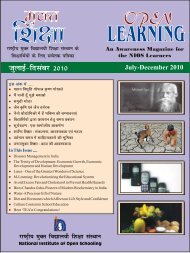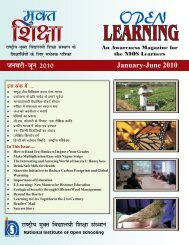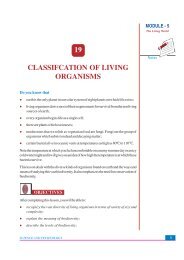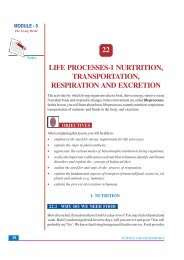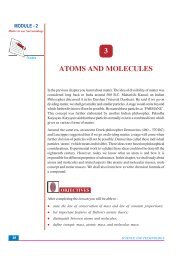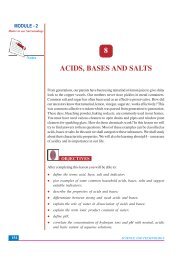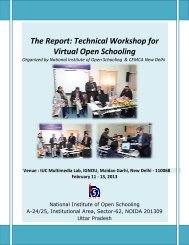32. Health and Hygiene - The National Institute of Open Schooling
32. Health and Hygiene - The National Institute of Open Schooling
32. Health and Hygiene - The National Institute of Open Schooling
You also want an ePaper? Increase the reach of your titles
YUMPU automatically turns print PDFs into web optimized ePapers that Google loves.
<strong>Health</strong> <strong>and</strong> <strong>Hygiene</strong><br />
mileage in mindless competition, people are likely to neglect their health <strong>and</strong> suffer from<br />
ailments like high blood pressure (also known as hypertension), increased blood sugar<br />
(known as diabetes) <strong>and</strong> many others. Although these diseases have a genetic<br />
predisposition, they have started affecting younger age groups due to undisciplined life<br />
style. <strong>The</strong>se are known as life style disorders.<br />
Causes<br />
1. Sedentary lifestyle: Insufficient or no physical activity, no outdoor games,<br />
lack <strong>of</strong> exercise, excessive use <strong>of</strong> vehicles are some <strong>of</strong> the factors that are<br />
responsible for the above mentioned diseases.<br />
2. Eating habits: Easily available fast food that is high in fat <strong>and</strong> sugar in<br />
popular food items like burgers, cakes, aerated drinks lead to obesity at young<br />
age. Can never replace the balanced nutrition provided by the Indian meal <strong>of</strong><br />
chapattis or rice, pulses <strong>and</strong> vegetables.<br />
3. Type “A” personality: People who are always focused on doing better than<br />
others rather than doing their best, those who get angry <strong>and</strong> frustrated easily<br />
<strong>and</strong> are intolerant towards others are more susceptible to lifestyle diseases.<br />
4. Family history <strong>of</strong> heart disease <strong>and</strong> diabetes also predispose people to these<br />
diseases.<br />
MODULE - 7<br />
Humans <strong>and</strong><br />
Environment<br />
Notes<br />
Prevention<br />
• Increased awareness <strong>of</strong> the reasons for lifestyle related disorders<br />
• Regular exercise, yoga, meditation<br />
• Avoiding junk food, <strong>and</strong> increasing intake <strong>of</strong> vegetables <strong>and</strong> water<br />
• Stress management, increased tolerance for others <strong>and</strong> positive attitude<br />
• Setting one’s own goals for improvement rather than blindly copying others<br />
• Motivating people around you for practising the above mentioned healthy<br />
habits.<br />
It is no secret that stress (over work, grief, depression) can depress the immune<br />
system <strong>and</strong> increase chances <strong>of</strong> falling ill. <strong>The</strong>refore we need to learn how to<br />
h<strong>and</strong>le stress in life.<br />
INTEXT QUESTIONS <strong>32.</strong>3<br />
1. Why is Filariasis also called Elephantiasis?<br />
___________________________________________________________<br />
SCIENCE AND TECHNOLOGY<br />
347


